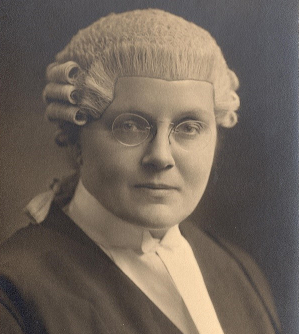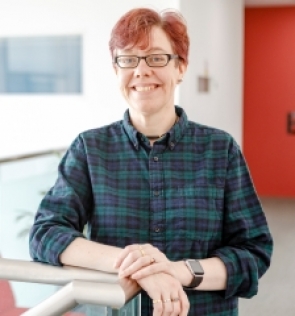A very special legal Christmas Eve

Dr Caroline Derry, Senior Lecturer in the Open University Law School writes about 24 December 1919, a special day for women and the law.
On 24 December 1919, Helena Normanton took her first step towards qualifying as a barrister when she was admitted to Middle Temple, one of the four Inns of Court (the others are Inner Temple, Gray’s Inn, and Lincoln’s Inn). The same day, seven women were appointed as magistrates. This happened because the Sex Disqualification (Removal) Act 1919 had become law the previous day, removing the legal barriers to women taking those roles.
Christmas Eve 1919 was a very special day for Normanton and the seven magistrates, but also for women in general. Before that, they had been excluded from the law: they could not become lawyers, magistrates or judges, and were not allowed to sit on juries. That did more than just limit the opportunities available to women. It also meant that when a woman appeared in court as a claimant or pursuer, a defendant, or a witness, she was likely to be the only woman participant in the room. The lawyers who represented or questioned her would be men; the magistrates, judge or jury who decided her case would be men; the senior judges who heard appeals (and in doing so, decided how the law should be interpreted and applied) would be men. Until the previous year, the Acts of Parliament they applied had been made by male peers and male MPs elected by men. Even in 1919, there was just one woman sitting in Parliament; and only women over 30 years old who met certain qualifications were able to vote.
The 1919 Act might seem, then, like a lovely Christmas present to women. However, if so, it was a present they had had to buy and wrap for themselves! The legislation was the result of a long, hard-fought campaign in which they had proved themselves more than capable of practising law. Indeed, some women were already doing legal work. Eliza Orme had opened a London law office, drafting documents for male lawyers, in 1875. Chrystal Macmillan represented herself before the highest court in the United Kingdom, the House of Lords, in 1909 when she argued for women’s right to vote. Cornelia Sorabji, the first woman to sit law exams at Oxford University, returned to India and represented clients in court with the special title of Lady Assistant. Famous suffragette leader Christabel Pankhurst had a law degree and argued for the cause and her own defence in the English criminal courts. In 1913, Emily Duncan was given special permission to act as a magistrate in ‘lunacy matters’ at the workhouse in West Ham, London. Four years later, Madge Easton Anderson became an apprentice law agent (solicitor) in Glasgow.
And all the time, women were demanding to be admitted into the legal professions. In 1901, Margaret Howie Strang Hall brought a case before Scotland’s Court of Session arguing, unsuccessfully, to be allowed to become a law agent. Two years later, would-be barrister Bertha Cave’s application to join Gray’s Inn was refused. She argued her appeal before a panel of Benchers of the Inn – its senior members, including some of Britain’s most senior judges – in a grand and imposing room in the House of Lords. When Christabel Pankhurst’s application to join Lincoln’s Inn was rejected in 1904, she became one of the founders of the Committee for the Admission of Women to the Legal Profession. In 1913, Gwyneth Bebb brought a case against the Law Society arguing she should be allowed to qualify as a solicitor; the Court of Appeal upheld her exclusion, but she received public support which increased the pressure for change.
These women were refused for no better reason than that women had always been excluded from the legal professions: what the courts described as ‘inveterate custom’. However, their arguments and achievements changed men’s minds, and in the years after 1919 women began to take their place in the legal system. In 1920, several hundred women magistrates were appointed, and Madge Easton Anderson became the first woman lawyer in the United Kingdom. She was joined in 1921 by the first barristers, Frances Kyle and Averil Deverell of Ireland, and in 1922 by the first women lawyers in England and Wales: solicitor Carrie Morrison and eleven barristers – including Helena Normanton.
 Dr Caroline Derry
Dr Caroline Derry
Dr Caroline Derry is a Senior Lecturer in the Open University Law School and the author of Lesbianism and the Criminal Law (Palgrave, 2020). She also researches early women barristers and has co-authored a timeline of women’s first century in the legal profession.
